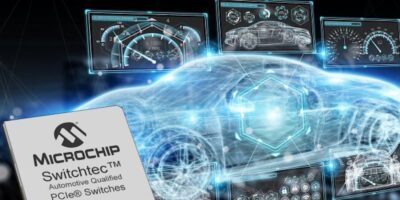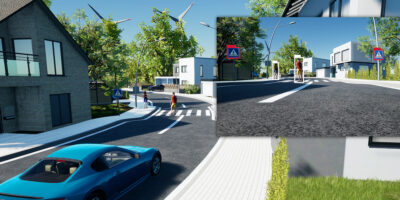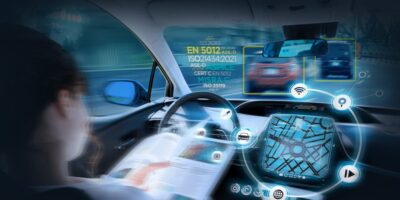Automotive microcontrollers (MCUs) optimised for electric vehicles (EVs) and centralised (domain and zonal) electronic architectures have been released by STMicroelectronics. According to ST, they enable EVs to become more affordable, drive further and charge faster.
In current EVs, high-efficiency silicon carbide (SiC) -based power modules enable the greatest driving range and faster charging. Until now, they have required dedicated high-speed signal processors to control the advanced SiC power semiconductors. The Stellar E MCUs launched by ST are designed for the next generation of software-defined EVs, integrate high-speed control-loop processing on-chip. A single MCU can control the entire module, says ST, simplifying module design, saving costs and easing compliance with automotive safety and security standards.
The MCUs extend ST’s Arm-based Stellar family. They are a centralised domain and zone controller which simplify automotive electrical architectures for increased power, flexibility and safety, explained ST.
The MCU family includes the Stellar P series for integration and vehicle control and the Stellar G series for body applications. The Stellar family architecture integrates multiple Arm Cortex cores that deliver high performance with the opportunity for lock-step redundancy and support real-time hardware virtualisation. All Stellar devices are designed for software upgradeability through secure over-the-air (OTA) updates.
The first product in the Stellar E series, the Stellar SR5E1 is optimised for EV on-board chargers (OBC) and general DC/DC converters, is now sampling to lead customers. Full production will begin in 2023.
The Stellar E (Stellar Electrification MCUs) series are automotive-qualified MCUs that perform the high speed, control loop processing alongside general control in the same chip.
The MCUs can control multiple power converters, leveraging features including a high speed ADC, a pulse-width modulation (PWM) controller and fast-acting protection circuitry.
The Stellar E series supports the leading automotive standards for functional safety (ISO 26262 ASIL-D), security (HSM -), and industry standard software interoperability (via Autosar 4.3.x), as well as secure OTA update. The Stellar family is supported with an extensive software-development toolchain with a common ecosystem for control and actuation.







